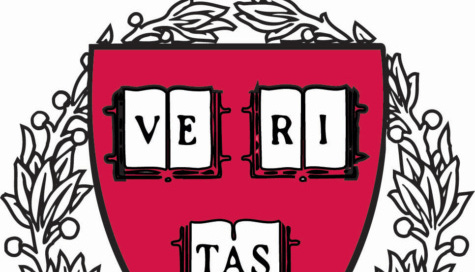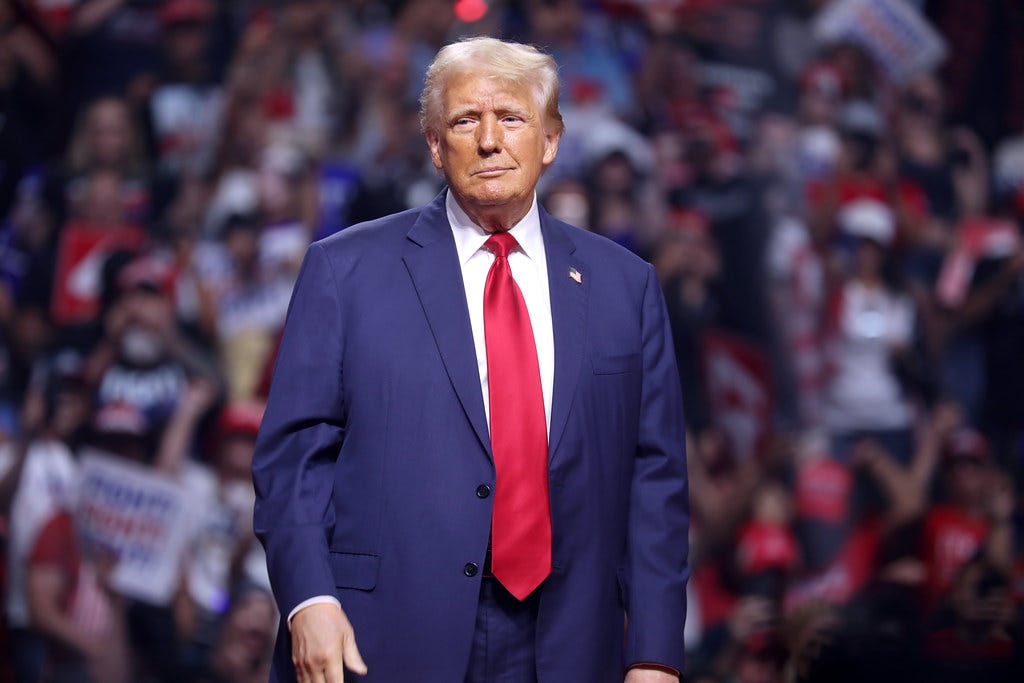Merit, Diversity, and the Right to Disagree: Why Harvard Was Right to Resist
On Harvard's Defense of Intellectual Merit
Pursue Truth & Think Freely
The pursuit of truth through open debate is one of the fundamental values of the Enlightenment and a cornerstone of the modern world. Unlike other Universities and institutions, Harvard seems to have rightly stood up for what is right. President Trump's administration made a series of demands that the University thankfully resisted. I completed my Masters in History through Harvard Extension School in 2024 and I could not be more supportive of Harvard’s posture. In contrast, Columbia University surrendered when pressured (I also have a degree from TC at Columbia). Let’s briefly look at this…
President Trump and his administration demanded that universities make a series of changes—some of which, in principle, might seem reasonable. For example, they emphasized the need for merit-based admissions and hiring practices. On the surface, that seems fair. After all, who doesn’t want institutions to reward talent and ability?
But the reality is far more nuanced. What do we mean by “merit”? And who gets to decide what counts?
I am perhaps in the business of problematizing, but that is another matter. We would need to think about how we assess merit and what counts.
Better SAT scores may not mean greater potential. These results in part reflect a person’s context and some people found themselves in a context in which they could better prepare for such examinations. Even if they had greater potential, it does not follow that they would (or would not) seize the opportunity to the same degree. So it is not entirely easy to figure out who has more merit…
Paradoxically, the Trump administration called for an end to DEI policies while simultaneously demanding that universities implement ideological hiring guidelines—essentially DEI by another name.
These demands emphasized the need for “viewpoint diversity,” calling for a critical mass of new faculty in each department who represent differing perspectives. On its face, this might sound like a reasonable goal—and in many ways, it is. Intellectual diversity is essential to vibrant academic debate. But how can we measure and enforce such diversity is far more complicated than it appears1. While I recognize that differences may give us different experiences and hence different experiences, I think, that these are mostly comprehensible to others.
At the same time the Trump administration is demanding universities “prevent admitting students hostile to American values.” However, welcoming people who are skeptical of the American project is an opportunity to demonstrate this system's virtues. Further, it seems that students regardless of their nationality who are critical of institutions, values and provide constructive commentary add to intellectual diversity rather than diminish it. These criticisms can help forge a more perfect union.
Admittedly, the guidelines also call for checking to see if prospective students have supported terrorism or been anti-semitic (both likely good filters). The demands included appointing a government supervisor to audit programs.
Harvard Refuses to Comply
Unlike other Universities, Harvard has chosen to reject the demands made by the Trump administration. Alan Garber, Harvard’s President, emailed the Harvard Community and said that while some of the demands relate to reducing antisemitism, most of them were an attempt to regulate “intellectual conditions” at Harvard.
Garber wrote that demands made by
“It makes clear that the intention is not to work with us to address antisemitism in a cooperative and constructive manner. “
Instead, Garber said this request
“threatens our values as a private institution devoted to the pursuit, production, and dissemination of knowledge. No government—regardless of which party is in power—should dictate what private universities can teach, whom they can admit and hire, and which areas of study and inquiry they can pursue”
In short, Garber unequivocally
“The University will not surrender its independence or relinquish its constitutional rights.”
I agree with Garber.
Universities must maintain their independence and the Trump administration is encroaching on their rights and responsibilities. Garber added:
“We proceed now, as always, with the conviction that the fearless and unfettered pursuit of truth liberates humanity—and with faith in the enduring promise that America’s colleges and universities hold for our country and our world.”
An article in the Atlantic suggests that Harvard learned that other universities did not gain much from capitulating to Trump’s administration. Rather, than releasing the funds it seems the Trump administration saw Columbia’s capitulation as weakness and proceeded to make even more demands. Since then, Columbia’s President further surrendered, and a few days later resigned. The Government is still to release the funds it was holding from Columbia.
The Trump Administration Escalates & Further Threatens Harvard
Shortly after Harvard announced they were rejecting the Government’s demands, Trump announced that his administration would withhold over 2 billion USD in federal funds. The administration insisted they could not continue to fund Harvard unless the University made significant changes to its “hiring, admissions, and teaching practices.” But this was not all.
President Trump’s administration seems to have doubled down by threatening to withdraw tax exempt status from Universities that do not cave to his whim. Trump made a post on Truth Social where he claimed that Harvard was pushing “political , ideological, and terrorist inspired/supporting Sickness,” and thus the Government could no longer fund them. In an even more despotic moment, Karoline Leavitt, White House Press Secretary, said that Trump wanted the university to ask for forgiveness. This sounds totalitarian because it is. The administration pushed harder and in what looks like a desperate attempt suggested that Harvard may no longer be able to register international students.
Later, the Trump administration claimed a letter sent to Harvard making wild demands was delivered by mistake. Does that make it better or worse? The administration has deported a man without due process by mistake, fired people whose job is to secure nuclear weapons by mistake, added a journalist to a Signal group chat where classified information was illegally shared by mistake, and more. The accumulation of mistakes is worrying.
In this case, a letter on official letterhead, bearing the signature of several officials, originating from the inbox of a senior official makes it hard to believe that the sending of the letter was unintentional. If it was another mistake then it becomes difficult to discern when the administration has not made one.
What About DEI?
This is not about whether DEI is correct, desirable, or not. It is about protecting institutions of higher learning from authoritarianism regardless of the value of DEI initiatives.
In general DEI seems to be well-intentioned, and aimed at increasing diversity in the academy. These policies are often based on the reasonable observation that ability and grit may be insufficient unless coupled with adequate opportunities.
Yes, obviously some people were able to succeed despite having many many many challenges. Others may have succeeded if some of these were removed.
I think we do not diminish ability nor effort if we recognize that it is easier to succeed within a favorable set of circumstances than it is within an unfavorable one.
I think arguments can be had about whether DEI policies may be misguided by focusing on the wrong categories. For example, I am latino, my mother tongue is Spanish, I have a genetic disease, and I could list a few other things. Nevertheless, I am super lucky to have been raised in a supportive environment, to have attended excellent private schools, and to have tutors to support my learning. What I mean is that I am arguably more privileged than many of the white midwesterns who sat with me in class.
Final Thoughts
In general I think it is good that Harvard has publicly resisted. Since then other Universities have said they would take a similar stance and there is talk of mutual defence agreements among Big Ten Universities. Acts of everyday resistance matter and can make a big difference. Universities are losing faculty, and some students are apparently losing their visas for participating in public debate and expressing their ideas, opinions, and beliefs.
One of the fundamental truths has been that the
“fearless and unfettered pursuit of truth liberates humanity.”
May we continue to pursue truth freely, relentlessly, and without fear.
On April 30th I read an article about Harvard’s own task forces. These are scathing critiques of the ways in which the University has failed to foster view point diversity and failed to encourage students feeling safe to express their ideas. Despite these shortcomings my argument stands.
I have worked at schools where there were students from several countries, and there was a claim that the student body was diverse. But most of these students hailed from similar socio-economic classes, shared similar values, and had lived in different countries. They appeared diverse, but much of their thinking was homogenous.






excellent insight into this seemingly neverending quagmire